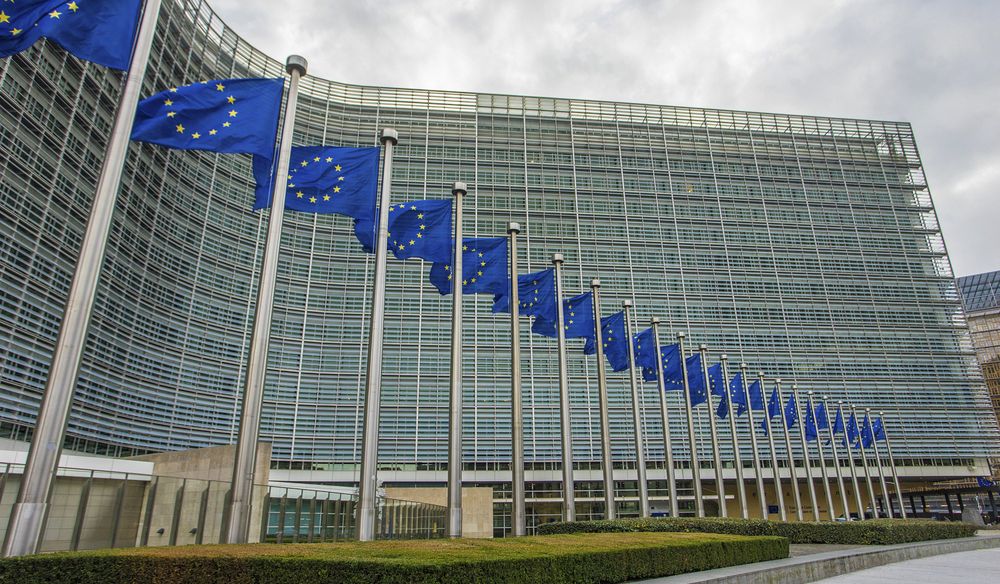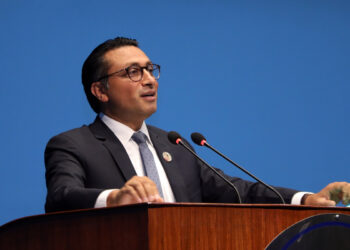KATHMANDU: The European Union (EU) said it has disbursed a total of EUR 2.1 billion between 2002 and 2019 to the Global Fund.
The Global Fund is a partnership organization designed to accelerate the end of AIDS, tuberculosis, and malaria as epidemics, a statement issued by the EU Delegation to Nepal said today.
Founded in 2002 and based in Geneva, the Global Fund is a partnership between governments, foundations, civil society, the private sector, professional bodies, and people affected by the diseases.
The Global Fund, the statement said, is the biggest global health initiative, spending USD 4 billion every year in more than 100 countries.
The European Union supported the establishment of the Global Fund and is among the main donors, having disbursed EUR 2.1 billion between 2002 and 2019.
While on its own the European Commission accounts for approximately 5% of Global Fund finances, the EU as a whole provides for on average approximately 50% of total Global Fund resources.
At the end of 2018, seven of the top ten investors in the Global Fund were European nations (France, the UK, Germany, Sweden, Italy and the Netherlands) along with the European Commission.
The current strategic plan of the Global Fund sets out four objectives for the 2017-2022 period: i) Maximize impact against HIV, TB and malaria; ii) Build Resilient and Sustainable Systems for Health; iii) Promote and Protect Human Rights and Gender Equality and iv) Mobilize Increased Resources.
Countries apply for Global Fund grants based on their eligibility and in accordance with the offer they receive from the Global Fund. Eligibility is calculated using a combination of country wealth (GNI per capita) and disease burden.
According to the statement, the Global Fund requires countries to apply through their Country Coordinating Mechanisms, a structure that was part of the Global Fund’s foundation, created to attract a wider group of stakeholders including governments, donors and civil society.
Commodities (medicines, tests, condoms…) procured with Global Fund resources are distributed free of charge to clients and patients in recipient countries. In expanding free access to these products, the Global Fund approach to procurement and supply is one way that it contributes to the Universal Health Care (UHC).
In October 2019 at the Sixth Replenishment Conference that took place in Lyon (France), the Global Fund successfully met its goal to raise US$ 14 billion. Typically, 95% of Global Fund resources are committed by governments. The EU pledged a total of €550 million to the new funding cycle.
The Global Fund is often referred to as one of the most heavily scrutinized organizations in the World. The Global Fund was established with a principle of full transparency around its activities, data, achievements and, crucially, it’s spending. This commitment to transparency has meant that the majority of material generated by or about the Global Fund is published online.
The main result of the Global Fund is their estimate that since its establishment 32 million lives have been saved as of the end of 2019 through the collective efforts of all partners working on the three diseases.
Since its inception in 2002, the Global Fund has committed in Nepal for more than USD 2.2 billion in 19 grants to accelerate the end of AIDS, tuberculosis and malaria. 97.5% of this support has already been disbursed.
The support is in line with the Nepal Health Sector Strategy and the specific national strategies of the three diseases.
The supported interventions include prevention programs for key populations, improving the management of cases and strengthening the health system.









Comment